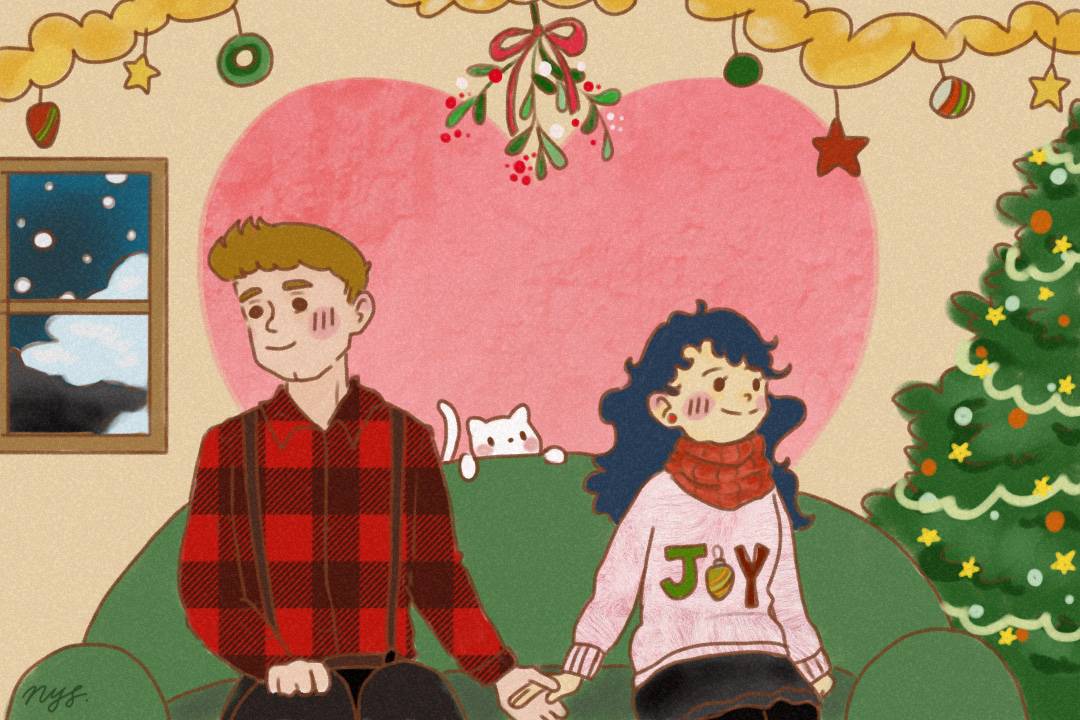It’s that time of year again. The weather is getting colder, Mariah Carey has defrosted, and the return of cringy holiday movies is imminent. Love them or hate them, they are an inevitable consequence that comes with the season.
Everyone knows the formula: a girl, often a writer, goes from the big city back to her small town after a work-life catastrophe and falls in love with a childhood friend who never left. Don’t forget the very unconvincing fake snow and the old man at the end, who always turns out to be Santa Claus. Sure, holiday movies can vary slightly from the formula, but the one thing they all have in common is a happy ending. Some people appreciate it, others do not. However, even if you find yourself cringing at the copy-and-paste holiday movie, there is something undeniably soothing about watching a movie so cheesy that it’s kind of good.
Despite widespread criticism or mockery of the genre, Hallmark rakes in millions yearly on holiday movies for a reason. There is a demand for holiday movies, and the explanation of why that demand exists actually lies in psychology.
Evolution has resulted in certain behaviours that contribute to our survival, like group tendencies such as empathy and caring for those we perceive as weak. Loving and being loved by others is also a need that humans have acquired since those with more support are more likely to survive. It is an innate need that has transcended into the present day, where people seek out others, like friends, family, and lovers, for support.
Terrible holiday movies are primarily romances with little substance to the plot. We may be able to fulfill our innate need to be loved by others and, therefore, to ensure our survival by associating with a group by living vicariously through the characters in cheesy films. Since there isn’t much action, antagonists, or anything else, there’s no stress worrying about whether the two characters will end up together, and you can just enjoy the romance.
Watching holiday movies that follow a predictable plot without heart-wrenching plot twists is a form of idyllic escapism. These movies are a welcome distraction from reality where, unlike the picture-perfect characters, problems cannot be solved as easily as finding the true meaning of the holiday season. Reality is unpredictable, to say the least, but these movies are predictable to a fault and provide viewers with a sense of stability that is not always present in their real lives. Many viewers find it calming to take a break from reality and enjoy the temporary holiday utopia that graces their screens for an hour and a half.
Not only is escapism a reason for liking holiday movies, but it also turns out our brains respond positively to watching sappy media. Holiday movies alter levels of beneficial hormones like dopamine and oxytocin. Dopamine is a hormone responsible for pleasure and satisfaction, while oxytocin is more commonly known as the love hormone. The increase in positive hormones while watching films like Hallmark movies and romcoms makes us feel ooey-gooey inside and is a biological reward that makes people continue to watch them.
These films are also nostalgic. They allow viewers to go back in time and experience the warm feeling we associate with the holidays but seldom feel. Life gets stressful, and with exam season coming up, we don’t experience the holidays like we did as children. Many of us want that feeling of unadulterated happiness back, and a Hallmark movie’s cheesy, innocent plot helps with that. Part of the reason these movies help with revisiting nostalgia is that they create a bonding experience. Bonding is a recreation of nostalgic childhood holidays, where friends can laugh together about how bad these films are, and grandparents can sit down with their grandkids to watch something horrendously cheesy together.
Hallmark movies will never be lauded for their impeccable writing, but it is clear that they’re here to stay. They hit the emotional goldmine of psychological factors that make holiday films so addicting, and the general consensus is that people find them fun.
Most of all, these types of films give people hope. Hope that a little bit of holiday magic will cut through your stress and find you this season. Hope that one day, you, too, may stumble upon a little town, find the true meaning of the holiday season, and possibly stop a development company from building a ski resort — all while simultaneously falling in love, of course.



No comments to display.